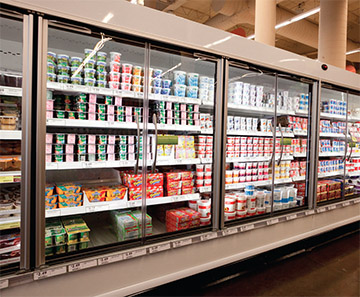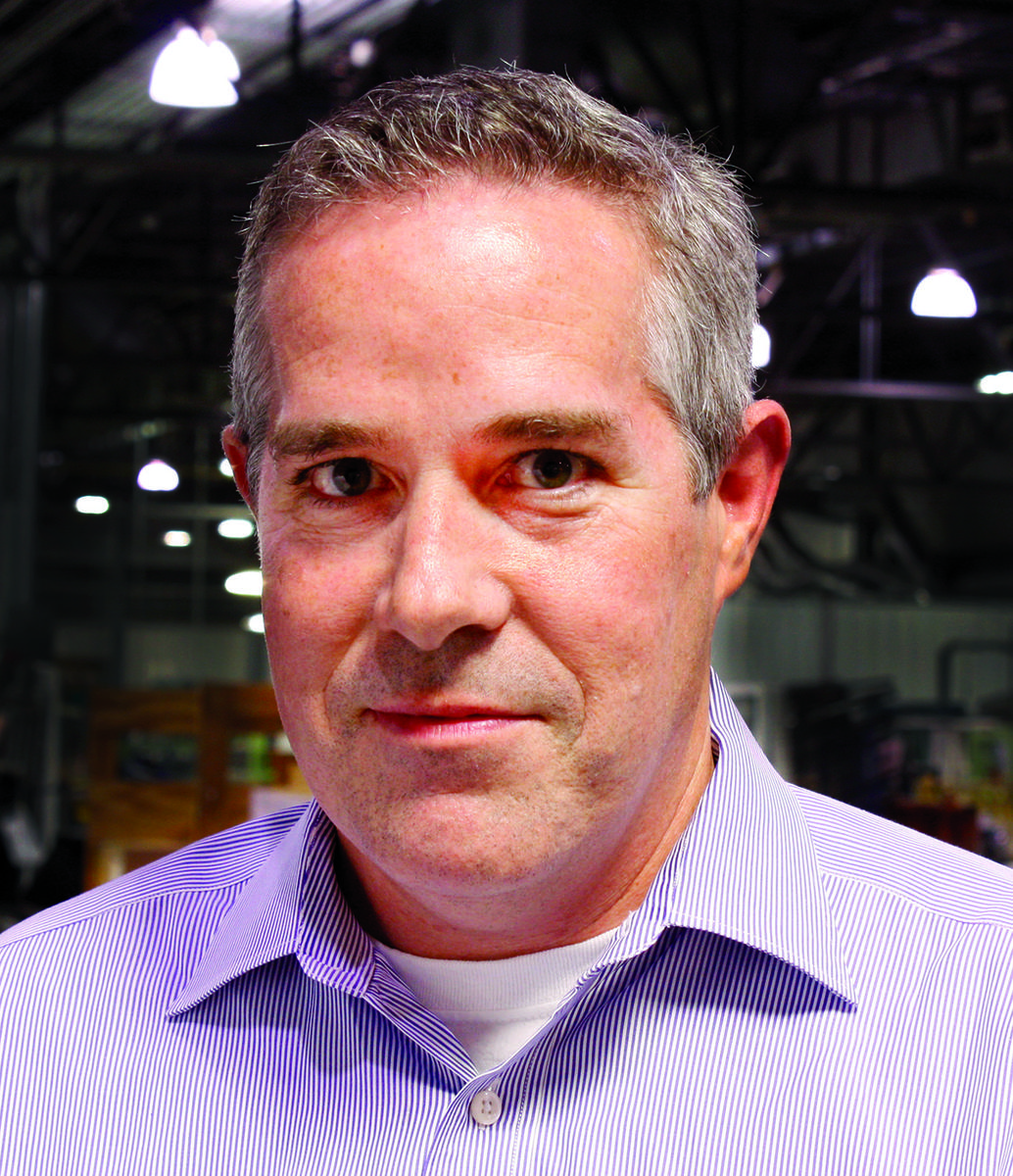
Quicklinks
WholeFoods Magazine
Close the Case - Protect Your Profit

For retailers, the refrigerated and freezer sections of supermarkets and grocery stores are notorious trouble zones. Open multi-deck cases consume a huge amount of energy and allow temperatures to fluctuate. The typical multi-deck meat or dairy case is defrosted four times a day (vs. once a day for a case with doors). That means four times a day, for about 30 minutes each cycle, product temperature spikes and allows bacteria to grow. Also, cold aisles make for an unpleasant shopper experience since bad lighting makes products look washed out. Refrigerated cases also take a beating from carts, kids and constant wear so they look dirty. Shoppers don’t want to buy food from dirty cases so it all adds up to profit loss and brand damage.
 |
| Open Case Before |
 |
| Closed Case After |
Reskinning existing cases costs 75% less than what it would to replace your case. Adding swing doors saves about 65% on energy costs; installing lids on open islands saves about 50 percent, and replacing fluorescent lights with LEDs saves about 75%. What’s more, the refrigeration and compressor load is reduced by 80% providing the opportunity to add cold displays to the load whenever you want, without any change to infrastructure. Close cases also directly increase profit by reducing food spoilage while vertical LED on doorframes provide more uniform lighting that makes products more appealing. LED lighting really pops!
If you’re warming up to the idea of reskinning, here are eight tips for evaluating vendors and getting the biggest bang for your buck:
- Use a vendor that can handle the project from start to finish: No third parties and no subcontractors mean no headaches and no hassles.
- Ensure your vendor can replace parts on all types of cases or you’ll end up with the aforementioned headaches and hassles of #1.
- Require after hours, no-downtime installation.
- Choose a vendor who has been around awhile—the longer, the better.
- Ensure your vendor offers (and has a reputation for following through with) after-sale support.
- Choose an Energy Star partner.
- Ensure your vendor offers durable, stylish products that last.
- Check that your vendor factory tests products before shipping to your site.
 John Roche is director of marketing and engineering for Anthony International, a Dover Company. Anthony International is headquartered in Sylmar, California. The company was founded in 1958 and is the leading manufacturer of commercial glass refrigerator and freezer doors, lighting systems and display equipment. For more information, send email to jroche@anthonyintl.com
John Roche is director of marketing and engineering for Anthony International, a Dover Company. Anthony International is headquartered in Sylmar, California. The company was founded in 1958 and is the leading manufacturer of commercial glass refrigerator and freezer doors, lighting systems and display equipment. For more information, send email to jroche@anthonyintl.composted on WholeFoods Magazine Online, 2/25/13








